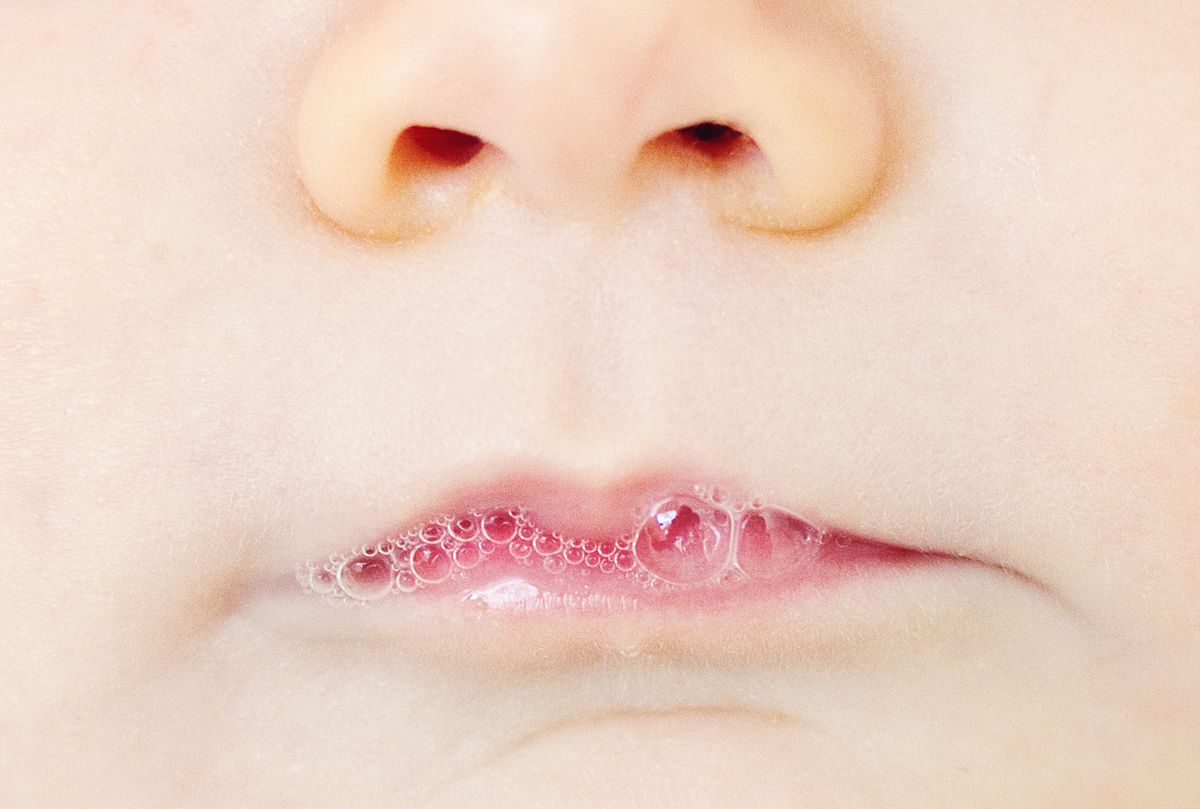While saliva does contain proteins that can help heal wounds faster, it also contains bacteria that could lead to infection if they come in contact with a wound, especially a deep wound. It is safest to clean wounds with sterile liquid, experts say, and, if necessary, consult a doctor.
Perhaps you already know the meaning of the phrase "to lick one's wounds." Merriam-Webster describes it as "to recover from defeat or disappointment."
Research on licking wounds has provided a whole new meaning to the idiom. Some studies showed that licking wounds can help them heal faster. However, studies also show that saliva can be dangerous, too, since the mouth is host to so many bacteria that can cause infection.
Occasionally, assertions about the power of saliva to heal wounds pop up online.
Around December 2021, @Fact claimed on Twitter that a protein in human saliva can heal wounds faster.
That revelation was not new, though. The information has been available for years, as an article from CafeMom noted, in 2017, that "kisses from mom may actually have real healing power."
"A protein in human saliva called histatin can help wounds heal faster!" tweeted @Fact. 'Licking Your Wounds' works."
We found the claim to be true – with a caveat, though.
Researchers have found that a protein found in human saliva, Histatin-1, enabled healing of wounds faster. "[S]aliva contains several proteins which play a role in the different stages of wound healing," found a 2014 study. "Saliva contains substantial amounts of tissue factor, which dramatically accelerates blood clotting."
The researchers noted several other ways saliva can help heal wounds. "Saliva creates a humid environment, thus improving the survival and functioning of inflammatory cells that are crucial for wound healing. In addition, saliva contains several proteins which play a role in the different stages of wound healing."
Another research found human saliva could also heal wounds on skin. "Saliva may possibly also stimulate skin wound healing," noted a study in 2019.
Other research also bore that out.
"Oral wounds heal faster and with less scar formation than skin wounds," said a 2018 research. "One of the key factors involved is saliva, which promotes wound healing in several ways."
One of the authors of the study, professor Vicente Torres of the University of Chile, told Earth.com about the protein histatin's role in healing wounds.
"Saliva is a key factor that contributes to the high efficiency of wound healing in the inside of the mouth," said Torres. "This is not only attributed to physical cues but also to the presence of specific peptides in the saliva, such as histatins."
According to the National Library of Medicines, histatins are a group of antimicrobial peptides (compounds consisting of two or more amino acids), found in the saliva of man and some animals. The NLM explained the function of histatin as "wound healing" among others.
However, experts also cautioned people not to rely on it solely and adopt other measures to treat their injuries.
A letter to the editor in the New England Journal of Medicine in 2022 cited the example of a 42-year-old man in Germany with diabetes whose right thumb was injured after a bicycle accident. The patient recovered from the minor injury in three days. However, the doctors had to amputate the tip of his thumb after four weeks. According to the letter, the patient told the doctors that he had licked the bleeding wound after the accident.
"Our case report indicates that contact of a wound with saliva carries a risk of severe infection," wrote the letter writers, Hans-Peter Weil, M.D. and Peter Koch, M.D.
Additionally, Clinical Knowledge Network from Australia that "provides clinicians with direct access to the latest evidence-based information for point of care decision making; medical, nursing and health research" also cautioned against the idea of licking wounds.
"Although human saliva contains some compounds that aid in healing, the mouth is also home to a host of bacteria that are perfectly safe in the oral cavity, but may be dangerous if introduced into a deep wound through saliva," it said in an article in 2018. "The principal risk of licking wounds is infection, especially in immunocompromised patients."
A Snopes story in 2010 also cautioned against relying on saliva. "However, licking wounds (whether you're letting a human or a dog do it) isn't a good idea due to the nature of all the other stuff transmitted by saliva, which includes some rather nasty bacteria. The best way to treat a wound is to regularly flush it with sterile water, then apply a clean dressing to the area."

